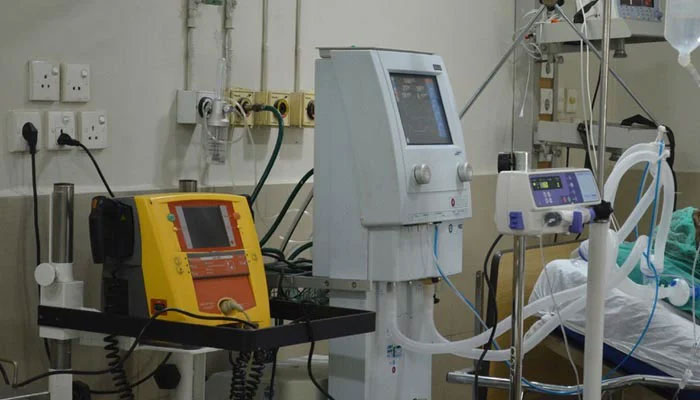18pc GST on health products to put additional burden on people: FPCCI
Chairman FBR emphasized that the pharmaceutical and healthcare sectors are vital components of the economy
ISLAMABAD: The imposition of an 18pc General Sales Tax (GST) on over-the-counter (OTC) health products, and medical devices, as outlined in the new finance bill 2024, will adversely affect the affordability and accessibility of essential healthcare products for the general public and place an additional financial burden on low-income people, the Federation of Pakistan Chambers of Commerce and Industry (FPCCI) said on Monday.
In a letter to Chairman Federal Board of Revenue (FBR) Malik Amjad Zubair Tiwana, FPCCI’s Senior Vice President Saquib Fayyaz Magoon expressed deep concerns over the imposition of the 18pc GST on health and OTC products and medical devices, urging for immediate reconsideration.
He maintained that their increased cost will not only adversely affect the affordability and accessibility of essential healthcare items for the general public but could also lead to a decline in overall public health, as individuals may be forced to forgo necessary medications and treatments due to financial constraints. “The additional financial burden on consumers, particularly those from lower-income segments, could result in reduced disposable income for other necessities,” Magoon said. He added that making essential health and OTC products and medical devices more expensive could lead to increased reliance on public healthcare facilities, which are already under significant strain. This could further exacerbate the challenges faced by our healthcare system, particularly in rural and underserved areas.
He emphasized that the pharmaceutical and healthcare sectors are vital components of the economy, providing employment and contributing to GDP growth.The imposition of a high GST rate may disrupt these industries, potentially leading to job losses and reduced investment in research and development. “We respectfully urge the FBR to reconsider the imposition of the 18pc GST on health and OTC products and medical devices,” the FPCCI official maintained. “We propose engaging in a constructive dialogue to explore alternative solutions that could achieve the government’s revenue objectives without compromising the health and well-being of our citizens. The FPCCI is prepared to collaborate with the FBR to find mutually beneficial outcomes,” Magoon said.
-
 James Van Der Beek's Friends Helped Fund Ranch Purchase Before His Death At 48
James Van Der Beek's Friends Helped Fund Ranch Purchase Before His Death At 48 -
 King Charles ‘very Much’ Wants Andrew To Testify At US Congress
King Charles ‘very Much’ Wants Andrew To Testify At US Congress -
 Rosie O’Donnell Secretly Returned To US To Test Safety
Rosie O’Donnell Secretly Returned To US To Test Safety -
 Meghan Markle, Prince Harry Spotted On Date Night On Valentine’s Day
Meghan Markle, Prince Harry Spotted On Date Night On Valentine’s Day -
 King Charles Butler Spills Valentine’s Day Dinner Blunders
King Charles Butler Spills Valentine’s Day Dinner Blunders -
 Brooklyn Beckham Hits Back At Gordon Ramsay With Subtle Move Over Remark On His Personal Life
Brooklyn Beckham Hits Back At Gordon Ramsay With Subtle Move Over Remark On His Personal Life -
 Meghan Markle Showcases Princess Lilibet Face On Valentine’s Day
Meghan Markle Showcases Princess Lilibet Face On Valentine’s Day -
 Harry Styles Opens Up About Isolation After One Direction Split
Harry Styles Opens Up About Isolation After One Direction Split -
 Shamed Andrew Was ‘face To Face’ With Epstein Files, Mocked For Lying
Shamed Andrew Was ‘face To Face’ With Epstein Files, Mocked For Lying -
 Kanye West Projected To Explode Music Charts With 'Bully' After He Apologized Over Antisemitism
Kanye West Projected To Explode Music Charts With 'Bully' After He Apologized Over Antisemitism -
 Leighton Meester Reflects On How Valentine’s Day Feels Like Now
Leighton Meester Reflects On How Valentine’s Day Feels Like Now -
 Sarah Ferguson ‘won’t Let Go Without A Fight’ After Royal Exile
Sarah Ferguson ‘won’t Let Go Without A Fight’ After Royal Exile -
 Adam Sandler Makes Brutal Confession: 'I Do Not Love Comedy First'
Adam Sandler Makes Brutal Confession: 'I Do Not Love Comedy First' -
 'Harry Potter' Star Rupert Grint Shares Where He Stands Politically
'Harry Potter' Star Rupert Grint Shares Where He Stands Politically -
 Drama Outside Nancy Guthrie's Home Unfolds Described As 'circus'
Drama Outside Nancy Guthrie's Home Unfolds Described As 'circus' -
 Marco Rubio Sends Message Of Unity To Europe
Marco Rubio Sends Message Of Unity To Europe




